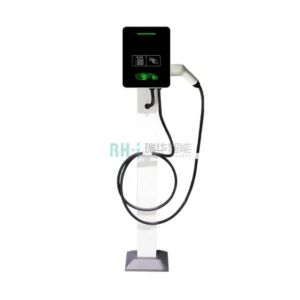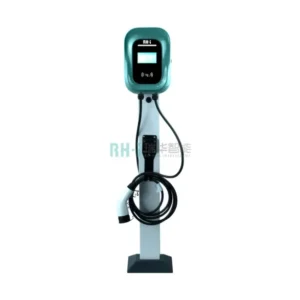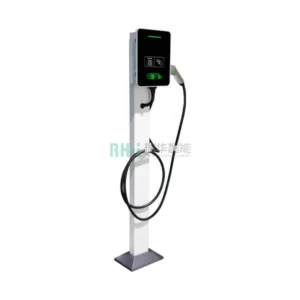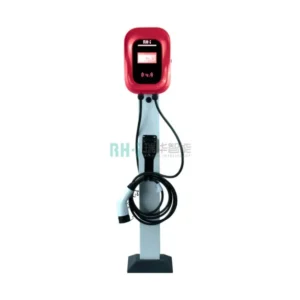Home Electric Car Charging Points – Installation, Cost & Grants
With the popularization of new energy vehicles, home car charging point has been upgraded from an ‘optional configuration’ to a ‘necessity’. This guide will systematically answer the three core questions of home charging: how to install charging equipment? What are the most popular home car charging points on the market? How long does it take to get a full charge?
Whether you are a new car owner who has just picked up a car, or a potential consumer who is on the lookout for a new car, grasping this key information will help you realize the ‘freedom of charging at home’ efficiently, and avoid stepping into potholes and spending more money.
How to charging point an Electric Vehicle at Home?
To power up your electric vehicle at home, you’ll want a dedicated Type 2 charging point installed where you normally park. While you can use a standard 120V outlet with the portable charging cord (what we call “trickle charging”) in a pinch, most owners opt for a permanent 240V charger – it’s faster, safer, and way more convenient.
Your home car charging point is a sleek, outdoor-rated unit that mounts to your wall or pedestal. You’ll choose between models with either a permanently attached charging cable or a universal socket for your vehicle’s plug. Important: Always hire a licensed electrician for installation – this isn’t a DIY project.
⚠️ Note: We support only CCS2, CHAdeMO, and GB/T connectors. Be sure to select a home charger that matches the charging port of your vehicle. Our chargers are fully compatible with most EVs using these international standards.
What are the popular home car charging stations on the market?
7kw Home Charger, Single Phase EV Charger
Protection level: IP54
Number of guns: single gun design
Charging interface: CCS2, CHAdeMO, GB/T, etc.
Price: 144.2-184.8$
11kW EV Charger, Home AC Car Charger
Protection level: IP54
Number of guns: single/dual gun design
Charging interface: CCS2, CHAdeMO, GB/T, etc.
Price: 149.8-198.8$
19.2 KW EV Charger, AC Home Charger
Protection level: IP54
Number of guns: single gun design
Charging interface: CCS2, CHAdeMO, GB/T, etc.
Price: 154-200.2$
Home 22kw EV Charger, AC Charging
Protection level: IP54
Number of guns: single gun design
Charging interface: CCS2, CHAdeMO, GB/T, etc.
Price: 156.8-201.6$
Cost of installing a dedicated home charger
Home electric car charging point typically range from $140 to $200 depending on model and features, making home charging an affordable and convenient option for EV owners looking to save on long-term charging costs.
Installation fees may vary based on your location, electrical setup, and local electrician rates. We always recommend using certified electricians to ensure safety and code compliance.
After installation, your only ongoing expense will be electricity usage. While rates vary by region and provider, home charging is consistently more cost-effective than using public charging stations.
How often should I charge my electric car at home?
You can charge your electric car at home as often as you need to. Just like charging your cell phone, charge it fully at night and recharge it during the day.
There is no standardized frequency for how often you should charge your electric vehicle at home, you can charge your electric vehicle at home as needed. Just like charging your cell phone, charge it fully at night and again during the day.
While daily charging isn’t necessary for most people, many drivers, out of habit, plug in every time they leave the house to maximize battery life in the event of an unexpected trip. This “stop-and-go” approach also improves overall travel flexibility.
By charging at night, EV drivers can take advantage of low nighttime electricity rates, which can be as low as 2 cents per mile during off-peak hours.
Night charging also ensures that the car’s battery is fully charged the next morning. There’s no need to unplug the battery when it’s full – charging stops automatically with a dedicated home charger.
Most drivers also use charging facilities at work or in public places.
Tip: Most cars allow you to set a maximum charging limit. Be sure to follow the manufacturer’s recommendations on how to “top off” the car. Some will recommend a 90% charge limit to allow the battery management system to evenly rotate the charge.
How Fast Can You charging point an electric vehicle at Home?
Home EV charging speeds are measured in kilowatts (kW). Our chargers provide 7kW to 22kW, delivering a much faster and more efficient charging experience compared to basic portable chargers.
A 7kW charging point can typically add 25–30 miles (40–48 km) of range per hour, depending on your vehicle.
A 22kW charging point, where supported by the vehicle and power supply, can deliver up to 75 miles (120 km) of range per hour.
Keep in mind that the actual charging speed also depends on your vehicle’s onboard charger capacity. For example, if your EV supports only up to 7kW, using a 22kW charging point won’t damage the battery—it will simply charge at the vehicle’s maximum supported rate.
⚠️ Note: A 22kW charging point requires a three-phase power supply, which may not be available in all residential settings. Always consult a qualified electrician to determine compatibility with your home’s electrical system.
How to Install an home car charging point at Home
Professional installation is required for home EV charging point. Certified service providers typically bundle installation fees with equipment costs.
A standard residential installation involves mounting the charging unit on an exterior wall or garage near your parking area, followed by safe connection to the main electrical panel. The process usually takes around three hours, depending on individual requirements and system complexity.
Scheduling & Support
Book installations online, by phone, or through your vehicle dealership. Most providers offer complimentary consultations to discuss options and address concerns.
Pro Tip
Be present during installation: Top-tier providers will optimize placement for convenience and aesthetics, demonstrate charging operations, and provide hands-on guidance.
Key Notes
- Safety Compliance: Ensure installations meet local electrical codes.
- Utility Coordination: Contact your power company for grid compatibility checks if needed.
- Warranty Protection: Opt for certified installers to maintain equipment warranties.
Smart Home Charging Solutions
As more Americans charge EVs at home, smart chargers are emerging as the solution to new energy challenges facing drivers and the grid.
Saving on Energy Costs
While EV drivers save money by using electricity instead of gas, home energy bills may still increase. The good news? Unlike fossil fuels, there are multiple ways to understand and reduce electricity costs for greater savings.
By shifting charging times, you can take advantage of time-of-use rates when electricity is cheapest. Most EV apps or smart charger apps let you schedule charging sessions automatically.
Many smart chargers monitor both home and EV energy usage, giving you clear visibility into per-kWh costs. This helps optimize spending and switch to cheaper rate plans when available.
Greener Energy Choices
Today’s EVs are already cleaner than gas vehicles, but charging with renewable energy makes them even more sustainable.
As wind and solar power grow nationwide, the U.S. grid keeps getting cleaner. While this means all EV charging becomes greener over time, you can also choose from numerous renewable energy providers for 100% clean home charging.
Managing Home Electrical Loads
Home EV charging adds significant electrical demand. Depending on your charger and vehicle’s max charging rate, this could potentially overload your main circuit breaker.
Premium smart chargers automatically balance power between your EV and household needs, preventing overloads while ensuring safe operation. This smart load management also enables multi-charger installations without manual switching.
RUIHUA’s home EV chargers feature automatic load balancing to prevent electrical overloads.
Supporting Grid Stability
With rising EV adoption, national electricity demand will increase significantly. The typical after-work charging surge around 8 PM could strain local grids if unmanaged.
Next-gen smart chargers will respond to – and even predict – these demand peaks, intelligently managing charging rates across thousands of vehicles to flatten spikes. The best part? Drivers barely notice the difference (RUIHUA data shows most EVs only actively charge about 25% of their plugged-in time overnight). The result: slightly longer charge times that protect the grid for everyone.





